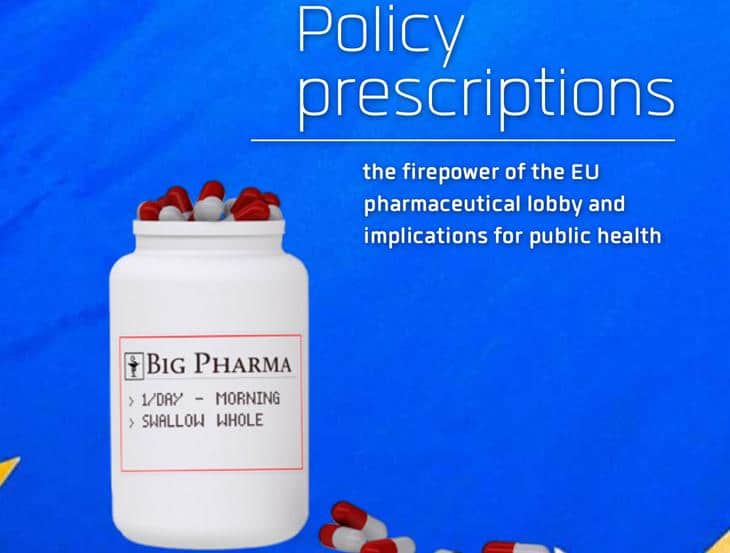
Pharma ‘spends €40m to sway EU politicians’
pharmafile | September 2, 2015 | News story | Medical Communications | EU, European Commission, TTIP, drug policy, lobbying, transparency
The pharma industry has excessive power over EU decision-makers and spends €40 million a year to influence EU drug policy, according to a report by a lobbying watchdog.
The report from the research and campaign group the Corporate Europe Observatory (CEO), found the pharmaceutical industry’s €40 million lobby expenditure dwarfed that of civil society actors working on public health or medicines issues, which declared just €2.7 million: close to 15 times less.
CEO notes the €40 million figure should be treated as a conservative estimate, as it only includes disclosed expenditure. Also the majority of entries included in the lobby register are from 2014: a European election year where companies would be less inclined to invest in lobbying potentially outgoing lawmakers, who were in any case inactive for up to a third of the year.
The research group says a ‘staggering’ number of meetings between pharma companies and the EU Commission departments that are involved in EU-level policies or projects that are of direct commercial concern to the companies themselves took place between the start of the European Commission President Jean-Claude Juncker term in office on November 1 2014 and mid-March 2015. Pfizer alone were involved in 15 such meetings.
According to the report, this lobbying targeted regulation on clinical trials transparency, trade secrets, and the negotiation of the EU-US trade deal, the Transatlantic Trade and Investment Partnership (TTIP).
The €40 million lobbying spend is made up of €22.9 million spent by pharma companies themselves, €7.7 million from pharma trade associations and €8.1 million from the ten lobby firms that spent the most on behalf of pharma clients.
Of the 40 companies to appear in the transparency register, Bayer was identified as the biggest lobbyist in terms of spend at €2.46 million, followed by GSK, Novartis and AstraZeneca, all of whom spent between €1.5 and €1.99 million. Total maximum expenditure rose from approximately €18.9 million in 2012 to €22.9 million in 2014.
The number of companies appearing on the register also rose by 17, from 23 in 2012, indicating greater adherence to the still voluntary EU Clinical Trial Regulation on transparency as well as an increase in lobbying in the last two years.
However, several pharma companies known to be clients of lobbying firms – including Janssen, Norgine and Takeda – did not appear on the transparency register.
CEO also accuses the industry of using ‘pharmish’, or doublespeak, to its own ends. For example, it says, when pharma refers to ‘access to medicines’, it means its own ability to get new medicines onto the market, as opposed to patient access. The word innovation is also often used erroneously, claims the report, with the aim of obtaining stricter IP regulations and greater restrictions on generics.
According to CEO, these ‘pharmish’ terms are used by the industry to “shape the agenda by choosing its facts and promoting a language that is easily owned by everyone”, and are creeping into EU rhetoric and affecting the public’s understanding and perception of how the industry operates.
Joel Levy
Click here to download the CEO report.
Related Content

Sobi’s Aspaveli receives European Commission approval for treatment of two rare kidney diseases
Sobi has announced that its Aspaveli (pegcetacoplan) has received approval from the European Commission (EC) …

Sharp invests $100m in US and EU manufacturing and packaging facilities
Sharp Services, a pharmaceutical packaging and sterile manufacturing specialist, has announced investments totalling $100m across …

European Commission approves HIV prevention injection
The European Commission (EC) has granted marketing authorisation for Gilead Science’s Yeytuo (lenacapavir), the first …






